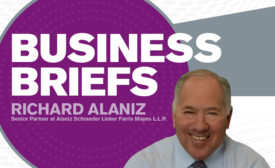Home » Keywords: » NLRB decisions
Items Tagged with 'NLRB decisions'
ARTICLES
Federal Regulators Make Life Easier for Unions
Employers need to understand the current atmosphere, what new actions mean
Read More
Developing Social Media Policies that Comply with NLRB Laws
Employees have the right to engage in “protected concerted activities”
Read More
Employers Struggle to Style Workable Employee Dress Codes
To avoid problems, employers need to carefully craft their dress code policies
Read More
The NLRB Provides Ammo to Unions
Employers should review their relationships with contract workers and temporary employees
Read More
NLRB Rules Against Employers for Firing Racist and Disrespectful Workers
Employers should be aware of recent trends
Read More
Advantages and Pitfalls of Using Employee Arbitration to Eliminate Class Actions
It is important for employers to understand the pros and cons of arbitration agreements
Read More
NLRB Weighs in on Employee Handbook Guidelines
Report Provides a Roadmap for Employers on What the NLRB Considers Lawful and Unlawful
Read More
Addressing Profanity in the Workplace
Employers Need to Carefully Consider Their Responses to Profane Language in the Workplace
Read More
Copyright ©2024. All Rights Reserved BNP Media.
Design, CMS, Hosting & Web Development :: ePublishing


